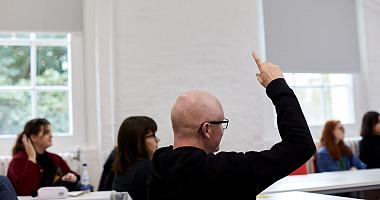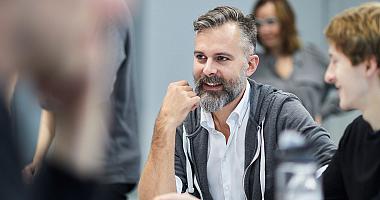Course information
Length
1 year full-time; 2 years part-time
Course overview
This programme will provide you with fundamental knowledge of the retail industry, introduce you to a diverse range of contemporary issues and teach you skills in creative and cutting-edge solutions based on core intellectual and practical frameworks.
The MA International Retail Business, Sustainability and Technologies combines retail business/management studies with a deep exploration of sustainability principles and practice, technological solutions to contemporary challenges, and building the requisite skills of leadership to drive these solutions forward. The programme differs from conventional retail management courses which exclusively or predominantly focus on the narrow 'management' aspects of retail business. Instead, we adopt a multi-disciplinary approach that introduces you to a diverse range of contemporary issues and provides knowledge and professional skills in cutting-edge solutions based on three core areas of expertise: International Retail Business, Sustainability and Leadership, and Retail Data and Technology.
Study across disciplines
- Since the term 'retail' includes all retailing sectors (e.g. automobiles, groceries, electronics, fashion, etc), this programme examines 'retail' not as a sole business subject, but as a multi-disciplinary integrated study field permeating myriad areas of social-cultural and economic life. The programme also aims to challenge established frameworks for understanding global retail business, with a strong emphasis on contextualisation and the incorporation of localised perspectives and frameworks.
Prepare for a career with a combination of theory and practice
- As one of the most highly globalised industries at a time of significant change, the retail sector has an urgent need for personnel (new recruits and middle-level managers) who not only understand core business principles and practices but also have the requisite mindset to engage with the social and cultural contexts within which their businesses operate.
- This programme's interdisciplinary approach augments a traditionally business studies approach to equip you with business management fundamentals in both theory and practice. You will also be exposed to relevant knowledge and critical understanding from other disciplines, set within a variety of economic, social, and cultural contexts that more closely reflect the true business world. You will come away with a much broader understanding of the retail sector and why certain business decisions should or should not be made. These essential critical thinking, analytical, and practical skills will make you extremely marketable in the retail world of the immediate future.
Engage with pressing contemporary issues
- The last two decades have seen the retail industry and its socio-cultural context encounter unprecedented challenges, which require a number of changes in approach, philosophy, and practice. Among the more important of these are the environmental pressures associated with the retail sector, linked to the ecological footprint of the products it sells, the resources it devours, the waste it generates, and the pressures associated with consumerism in general.
- The sector is also facing significant existential challenges as it struggles to navigate the rapid changes in globalisation, consumer preferences, and demographics, as well as the proliferation of social media, online retail platforms, and seismic shifts such as those caused by the Covid-19 pandemic. The retail industry is currently facing a historic watershed as it responds to simultaneous demands for stability, adaptability, relevance, sustainability, social responsibility, inventiveness, technological innovation, and financial viability.
Contact the department
If you have specific questions about the degree, contact Paul Yuille or Gerald Lidstone.





